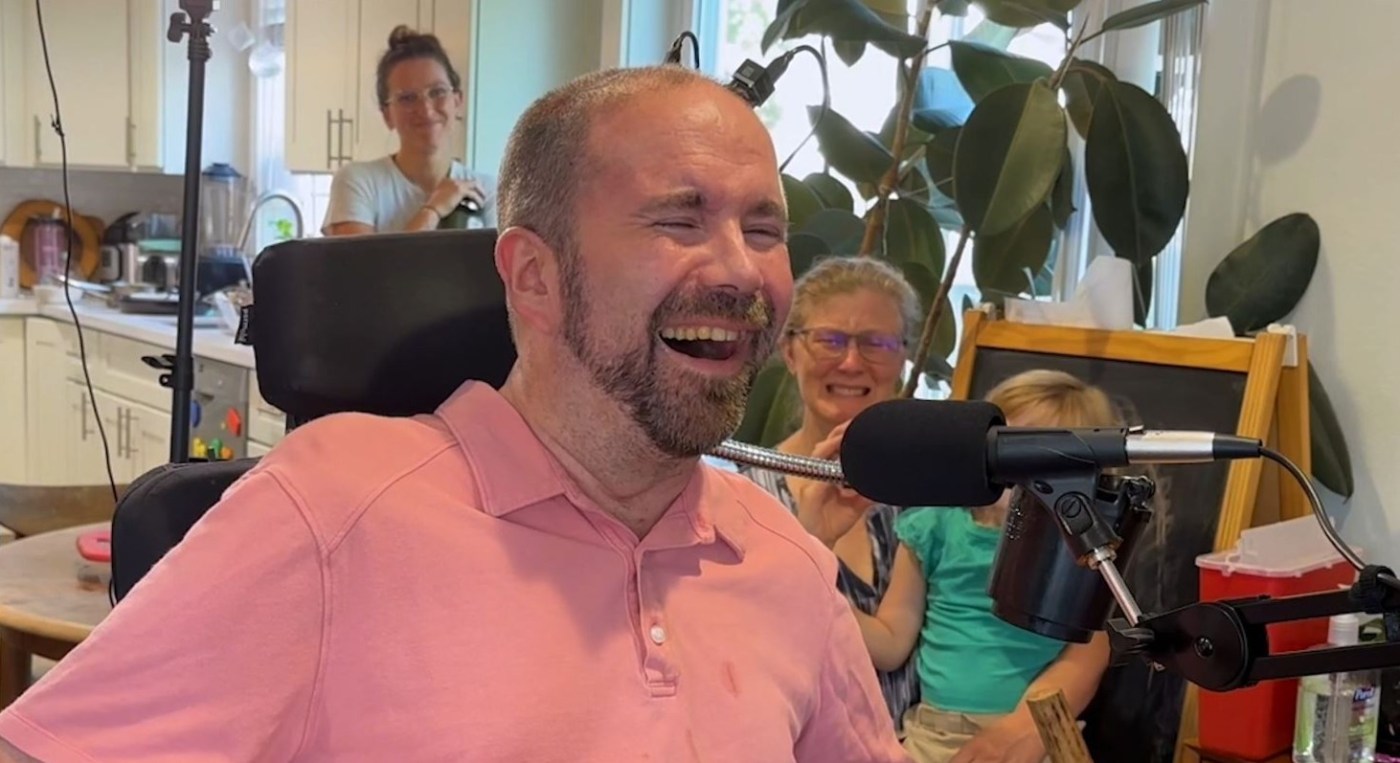The moment Casey Harrell heard his voice again in 2023 was an instant 50 years in the making.
Struggling with paralysis caused by amyotrophic lateral sclerosis (ALS), Harrell feared he would never communicate with his daughter again until research pioneered by California universities gave his voice back. When he spoke using a revolutionary brain-computer interface developed at the UC Davis Neuroprosthetics Lab, his own voice — once stolen by disease — brought Casey, his family and researchers to tears of joy.
Related Articles
Solving a sea otter mystery: Monterey Bay Aquarium researchers track down origin of deadly disease
Daylight saving time ends Sunday — and Stanford study suggests it should go away for good
Dinosaurs were thriving in North America before the mass-extinction asteroid strike, study suggests
Want your kid to be smart? Heads up: The Bay Area Science Festival is this Saturday
Music could help ease pain from surgery or illness. Scientists are listening
The breakthrough technology instantly decodes brain signals, transforming intent to speak into Casey’s digitized voice, but the effort was anything but instantaneous. It was the culmination of decades of painstaking work in American research university labs — a relentless pursuit to unravel the workings of the brain to restore communication.
Advances like these, made possible through generations of federally funded university research, are now at risk due to funding cuts. To protect America’s edge in health innovation and global competitiveness, the government must sustain its investment in research universities in California and across the country.
Failing to do so would be a tragedy for patients. Every year in the United States 5,000 people are diagnosed with ALS. It will strip verbal communication from up to 95% of patients, leading to diminished quality of life and profound mental health challenges, making efforts to restore communication vital for families everywhere.
To understand how UC Davis helped Casey speak again, we must look back to the 1970s. The term “brain-computer interface” was first used in a National Science Foundation-funded lab at UCLA. That basic research sparked a revolution that extended to UC San Francisco, where researchers uncovered how regions of the brain produce and process speech. Stanford and UC Davis built on this groundbreaking work.
This journey, which extended to public and private research universities worldwide, illustrates the power of federally funded research. Every step relied on grant funding, and every outcome advanced the common good. By allowing teams to explore unconventional strategies, we unlock possibilities that purely commercial ventures cannot pursue.
Because universities share and iterate on their findings, cuts to even a single institution — like those threatening colleagues around the state — ripple nationwide, undermining advances bringing results to patients’ lives.
The urgency to support medical discovery is crucial. Each year, over one million Americans are diagnosed with disorders like Huntington’s, Parkinson’s and traumatic brain injuries. Globally, neurological conditions affect over three billion people, making them the world’s leading cause of disability.
The technology that returned Casey’s voice is a critical step forward for people worldwide with neurological disorders and brain injuries. With continued support, scientists and doctors at California’s research universities will advance solutions, renewing hope to millions.
The power of basic research at universities extends beyond neurological conditions. Basic research at University of California campuses in the 1960s and 1970s laid the foundation for modern insulin pumps smaller than a cellphone, protecting millions; for cochlear implants improving hearing for hundreds of thousands of people; and the gold standard for tissue-typing to match over a million organ donors in the United States alone, to name a few of the developments rooted in this work.
Sustained federal investment will ensure more patients experience these life-changing breakthroughs. Policymakers must continue supporting the research at our nation’s universities so that each of us can enjoy a healthier, happier and more rewarding life.
Research begun generations ago laid the foundation for Casey Harrell to speak again. Now, we all must raise our voices to speak up for continued national investment in publicly supported research to ensure that every patient has the chance to be healed and heard.
Gary S. May is UC Davis’ seventh chancellor and oversees all aspects of the university’s teaching, research and public service mission.





